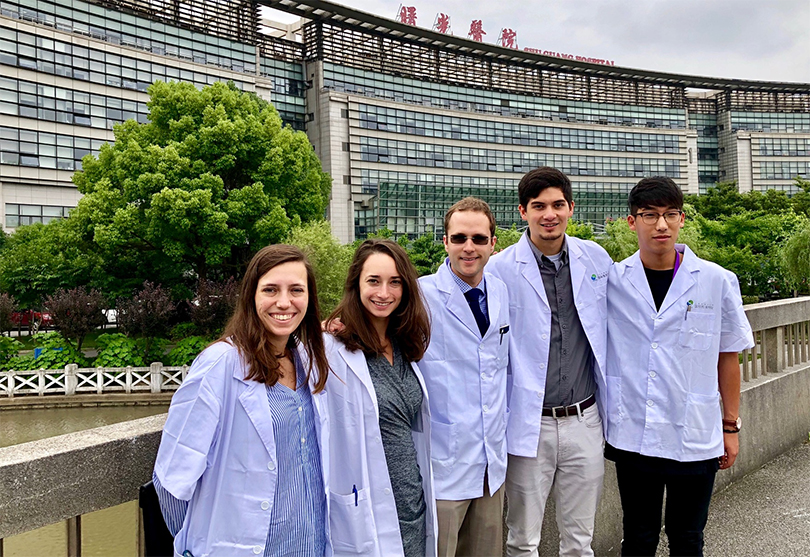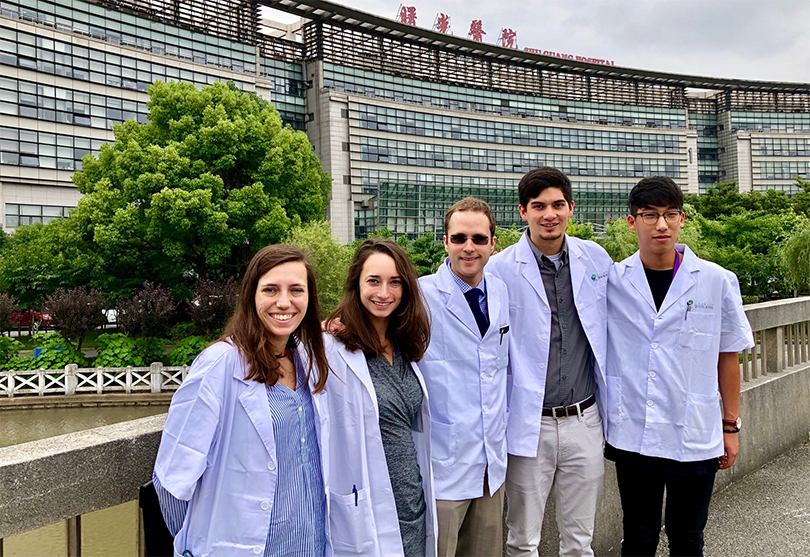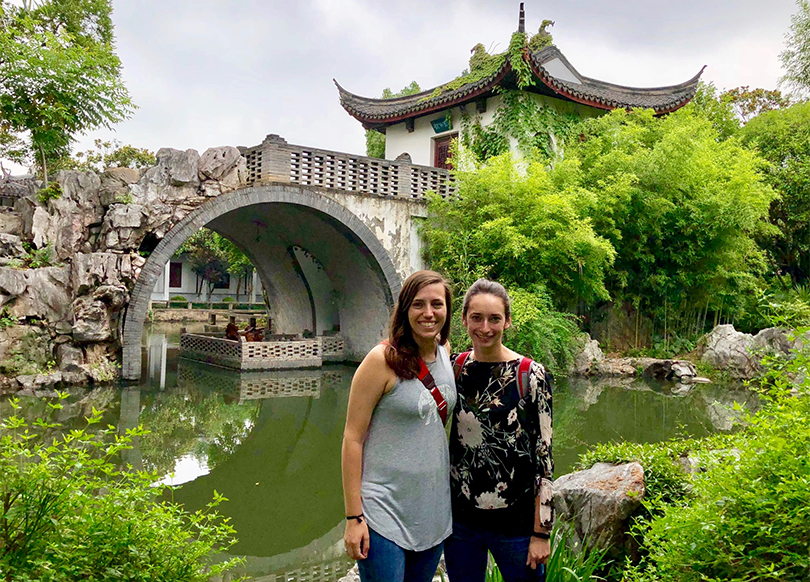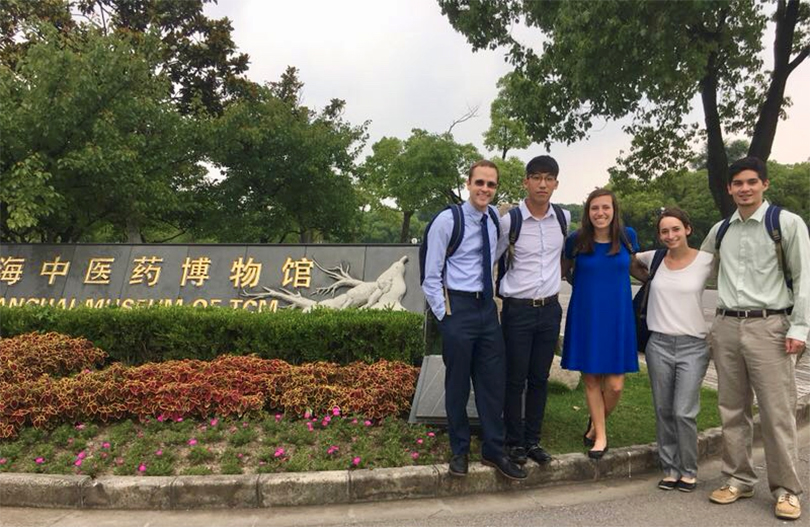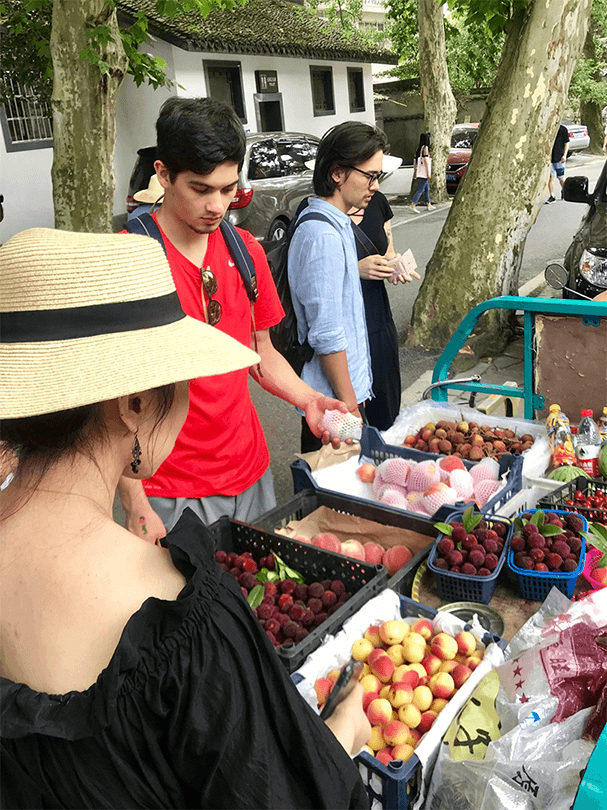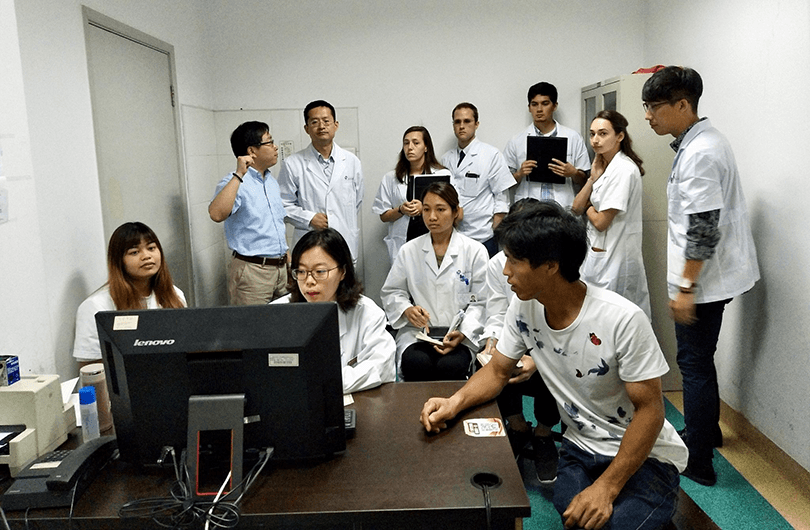Five first-year students from the Medical College of Georgia ventured to Shanghai University of Traditional Chinese Medicine (SHUTCM) in Shanghai over the summer as part of a study abroad opportunity sponsored by the Augusta University Confucius Institute.
Students Jong Baek, Keelan Passmore, Jackson Reynolds, Chloe Super and Elizabeth Wesley participated in the program, the first ever collaboration between SHUTCM and MCG. The trip included a series of lectures and clinical observations in the practice of Traditional Chinese Medicine (TCM) and touched on TCM techniques such as acupuncture, herbal treatments, tui na massage and moxibustion—a traditional therapy technique involving burning mugwort on certain points along the body.
Super, visiting Shanghai for the first time, said seeing China’s extensive community healthcare education and disease prevention programs in action was something of an “oh, wow” moment.
“Every day of the week, physicians take turns going to distant communities and giving talks about basic healthcare and teaching people how to prevent the most common diseases,” she said. “They also deliver primary care to those who need it.”
In addition to learning about TCM techniques, students also had the opportunity to observe patient care using TCM methods at Shuguang Hospital.
Super said she was surprised by the attitudes of patients.
“[They] were extremely patient with their treatments,” she said. “Nobody expected to feel better immediately. In fact, most of them didn’t believe their treatment to be working if it wasn’t at least a little uncomfortable or didn’t taste terrible.”
Attending lectures specifically designed for the group, students received a crash course in TCM philosophy, history and research. Students also attended lectures about the modern uses of TCM in the fields of oncology, neurology, gastroenterology and orthopedics. A trip to the Neurology Intensive Care Unit capped off the students’ visit, guided by Shuguang Hospital’s Chair of Neurology.
Super said the trip strengthened her desire to incorporate different approaches to healthcare and medicine into her future practice and research efforts.
“It taught me to maintain an open mind about potential treatments… while also being critical about empirical evidence regarding efficacy and side effects,” she said.
SHUTCM is AU’s partner through the Confucius Institute and has previously hosted two groups of undergraduate students on their campus in Shanghai.
Super said for her, the trip highlighted one of medicine’s biggest challenges: cross-cultural collaboration. Just as countries around the world must collaborate to solve economic, environmental and political challenges, scientific and medical advancement also require a more globalized approach.
“We [in the West] struggle to treat chronic illnesses such as Crohn’s disease and irritable bowel syndrome and we use drugs, such as chemotherapy, with extreme side effects,” she said. “The answers to many problems we face have been developed and discovered, if only we’re willing to look past the cultural differences and incorporate the best of each into our own medical practices and institutions.”
 Augusta University
Augusta University
